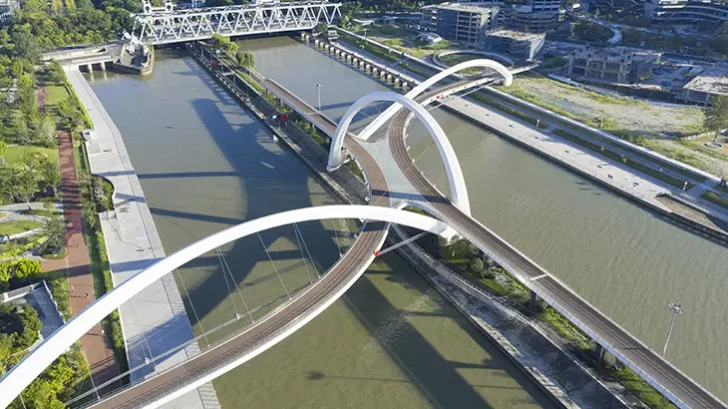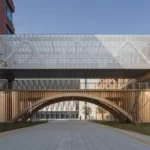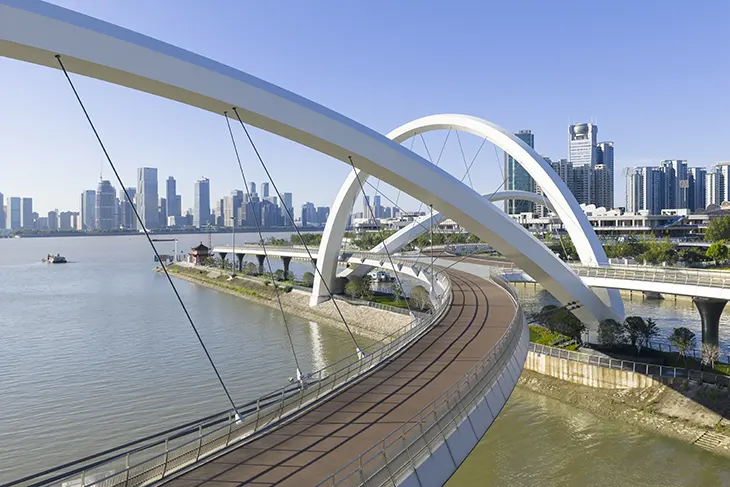
Zaha Hadid Architects have completed the Grand Canal Gateway Bridge in Hangzhou, China, a 390-metre-long structure that serves as the centrepiece of the city’s new 14.7-hectare River Middle public park. When it opens later this year, the bridge will link the east and west banks of the 800,000-square-metre Seamless City masterplan, reconnecting Hangzhou’s urban development with the Grand Canal and the Qiantang River.
BRIDGES
A UNESCO World Heritage site, the Grand Canal is the world’s oldest and longest man-made waterway. At its southern gateway in Hangzhou, the Qiantang River produces the famous “Silver Dragon” tidal bore, whose powerful waves reach nine metres high. ZHA’s design engages with this natural spectacle by integrating elevated walkways and plazas that allow visitors to safely experience the phenomenon from multiple viewpoints.
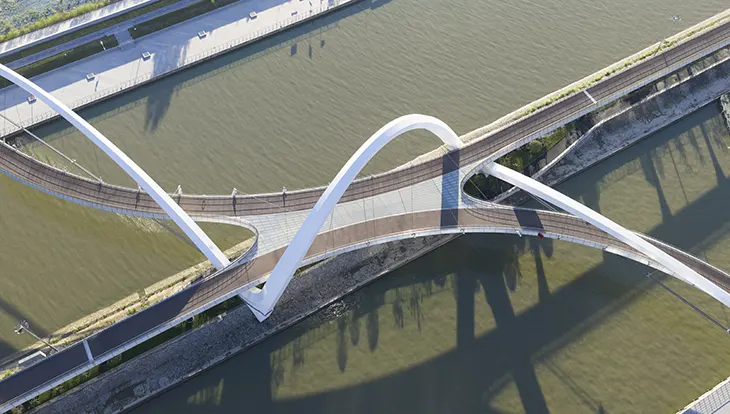
Drawing inspiration from Hangzhou’s history as a centre of silk embroidery, the bridge’s sinuous steel structure emulates the interlacing of threads, with overlapping elements that weave together pedestrian and cycling paths. This formal rhythm expresses both motion and continuity, echoing the cultural and ecological fabric of the surrounding landscape.
Engineered as a three-arch steel bridge, the Grand Canal Gateway was optimised through advanced 3D modelling to reduce material usage and maximise efficiency. Prefabricated modular construction allowed for rapid assembly and minimal disruption to river traffic, preserving the canal’s vital role in China’s sustainable cargo transport network.
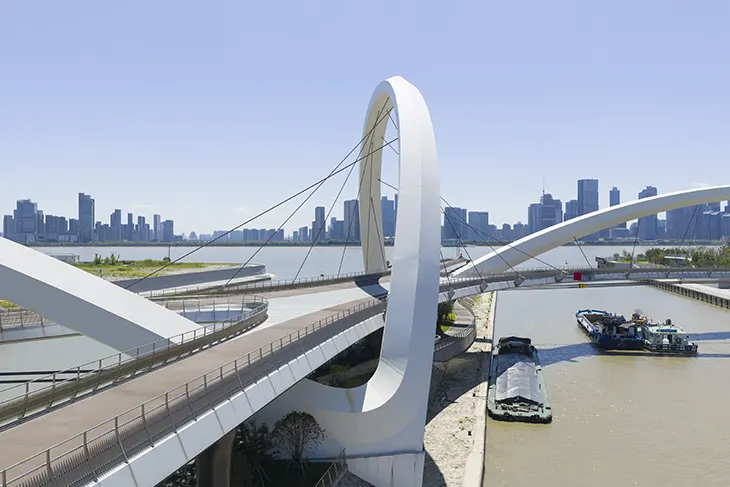
Locally sourced materials, low-impact finishes, and battery-powered LED lighting powered by renewable energy further anchor the project in sustainable design. Structurally, the bridge’s geometry distributes forces with precision, balancing wind and ground conditions at the confluence of the canal and river.
Uniting contemporary engineering with cultural reference, the Grand Canal Gateway Bridge embodies Zaha Hadid Architects’ ongoing exploration of fluidity, form, and connection. Sculptural yet efficient, it redefines the relationship between infrastructure and landscape, an elegant new threshold between Hangzhou’s historic waterways and its future cityscape.
